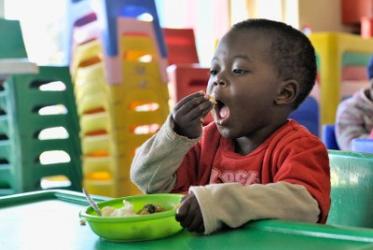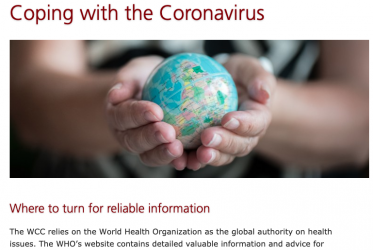Displaying 81 - 100 of 144
G7 must address famine
22 May 2017
Applications open for WCC Eco-School
10 May 2017
UN discussion focuses on women, HIV and property rights
21 March 2017
Lead by example: get HIV tested
30 November 2016
WCC Executive Committee issues statement on climate justice
25 November 2016
Zambia: “On HIV, we do not compete. We work together.”
20 October 2016













